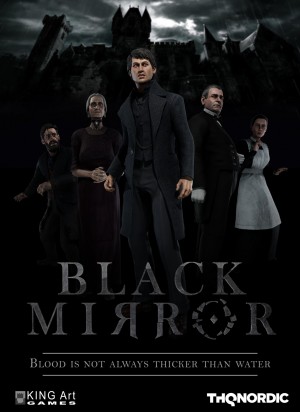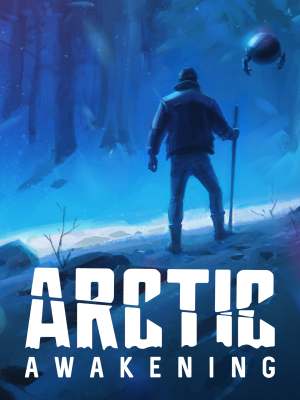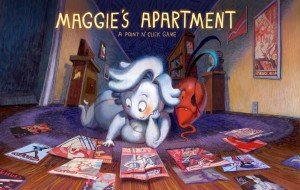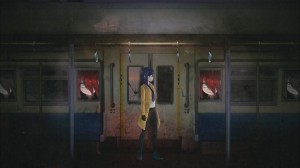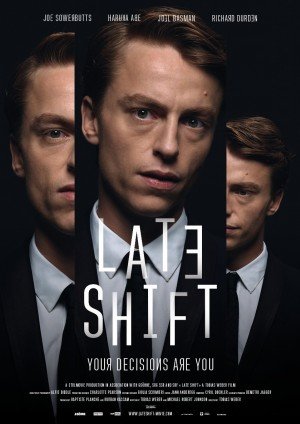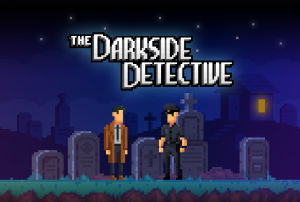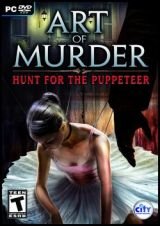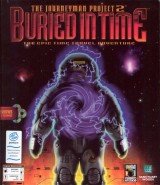Review for Black Mirror page 2
A frantic run across a moonlight-drenched Scottish moor brings John, one of the many ill-fated scions of the Gordon family, to an ominous stone henge. Chased by apparitions, real or imagined, the man stumbles upon an ancient bloodstained alter, and begging forgiveness for failing his son, sacrifices himself in a valiant effort to atone for the sins of the fathers. The misty, foreboding moor, John’s spiral into madness, and the tragic prelude will be oh-so-familiar to any fan of the Black Mirror series, but this is not the Gordon family or the Black Mirror castle as you may remember them. As John’s adult son David steps onto the premises of the fabled family manor a few days later, armed with little more than a cryptic note warning him about the Gordon curse, you feel genuine apprehension about the horrors that lurk in wait for him in its maze of rooms and corridors.
The fourth series instalment, but the first to be fully developed by KING Art Games, is simply titled Black Mirror and attempts to rekindle the saga six years after it was originally concluded. A reboot rather than a sequel, it is billed as a ‘modern re-imagining’ set in the early 1900s, with David coming to Scotland for the first time since his mother fled to then-British occupied India to save him from his unfortunate legacy. On a positive note, this episode is creatively aligned with its predecessors in terms of gothic doom and gloom, and weaves a duly macabre storyline. However, it is fairly short if you exclude the hours of backtracking across the sprawling mansion and neighbouring areas, waiting for frequent and lengthy load times along the way, and the constant struggle to perform even the simplest of tasks due to the clunky controls. The family home is lavishly decorated, but the 3D graphics are dated by at least a decade, with characters moving awkwardly and often through each other and furniture. The Black Mirror revival is clearly a labour of love, so it’s unfortunate that the experience is let down by mechanics that simply do not match up to the ambition.
The game centres around David’s arrival at Sgathan Dubh – ‘Black Mirror’ in Gaelic – in response to the family lawyer’s letter to sort out inheritance issues in the wake of his father’s death. David is coldly received by his elderly grandmother, Lady Margaret, the ramrod-straight stern matriarch of the Gordon family. She disdainfully dismisses her deceased son as a flaky troublemaker, and is uninterested in bonding with her grandson. David himself is a bit of a milquetoast, a benign but likeable young man. He is curious and adaptive, and works to systematically unravel his family’s secrets. The story uses Edgar Allan Poe’s concept of ‘dreams within dreams’, blending reality with visions of the past to create a layered narrative. A host of ghosts, portrayed by fluid white outlines, cavort about the mansion and infringe upon David’s consciousness, propelling him to tease out the Gordons’ tragic history one lurid chapter at a time. It is a complex and disturbing tale of noble intentions, incest and abuse, familial treachery and brazen cruelty, spanning generations and entwined with hints of the paranormal.
A ragtag bunch of supporting characters also inhabit the mansion: overbearing butler Angus; mousy maid Ailsa; blind and withered gardener Rory, endowed with a surprisingly elaborate backstory; and David’s uncouth, acne-riddled, redheaded cousin Eddie. Andrew the lawyer is as shifty as they come, and keeps matters muddied while being perfectly polite. A young blonde doctor from the local asylum, Leah, is shoehorned in on a vague pretext, possibly to add a strong female character to the mix. She partners with David for most of the game, adding little value but complicating the already-tedious mechanics by being another obstacle to navigate around.
Even as the game sets up the twisty plot, it tortures you with its incredibly tiresome navigation. I played with a gamepad, which is only marginally better than the keyboard-mouse combination, but the trouble is inherent in the overall game design as much as poor implementation. Even its most basic activities like walking and aligning the characters with relevant objects are difficult to control, with slight adjustments leading to large variations and jerky movements on screen. The constantly altering camera angles do not help. With increasing complexity, like interacting with moving hotspots during tightly-timed sequences, the problem escalates exponentially. It is possible to die abruptly and repeatedly while you fiddle with the finicky controls, forcing you to reload from a recent autosaved checkpoint or a manual save that may not be immediately before the fatal moment. On one occasion, you encounter just such a sequence right after clumsily piecing together a jigsaw, and each time you die, you must restart by reassembling the puzzle. David also suffers from intense brain seizures, and you must scramble to resolve that before the painful keening sound overwhelms you as well.
As annoying as they are, fortunately the ‘action’ elements are limited as the game is largely focused on conversations and exploration, with a handful of quests. Some of these are inventory-based, such as ridding the cellar of spiders. Interacting with the inventory involves multiple clicks, and each time you must rifle sequentially through the collected objects for the right one. The few logic puzzles generally involve cracking ciphers to unlock doors and drawers, and some trial-and-error pattern matches. Strangely, many of these occur in the first chapter, creating the early impression of a very traditional point-and-click adventure, though the game progressively deviates from that approach the further you progress. Special mention must be made of the frustrating master key puzzle – this key has multiple tiny arms that must fit patterned locks, but even after you figure out the strategy involved, it is incredibly awkward to position the tiny arms in close-up using the clunky controls. This puzzle is repeated four times with various combinations of additional complexity.
While the game is generally linear, the quest log is very useful for the many occasions when you cannot intuitively tell what to do next. David mostly explores alone, or with outsider Leah, so his diary entries are essential to get the detailed context and backstory. There are a few decision points, like whether you want to break open a desk or unlock it with a pick, but these are mostly academic and have no bearing on the overall outcome. Another major problem area is backtracking across the mansion and the grounds looking for people and places. It is an expansive arena comprising several large rooms, kitchen and dining areas, cellars and secret spaces, the infamous old wing, as well as external locations like a lake, a greenhouse, an abandoned chapel, and the nearby ruins of an old village, each of which is preceded by a noticeable load time no matter how often you visit. Characters can appear randomly in any location, and some areas are difficult to find in the dimly lit scenes, especially where Leah holds the only source of light and trails far behind David. Moreover, certain hotspots are triggered by ongoing events, requiring you to return to places and examine items that were previously inactive.
The graphics are also a mixed bag due to technical issues. A lot of attention and detailing has gone into creating the historic, imposing Sgathan Dubh. Though slowly crumbling to ruins alongside the Gordon family’s decline, its plush interiors, laden with embroidered carpets and curtains, game trophies, expensive furniture and decorations, are a testament to its decadent history. The eerie ambience is enhanced by much of the game being played by candlelight: the shifting shadows and reflections off glass cabinetry, the beautiful stone-and-tile flooring, and ceramicware as David explores the antiquated mansion at night is a visual delight. Some characters are intricately detailed, like grizzled Rory and still-elegant Margaret, while others, like Leah and Eddie, are somewhat rudimentary. All have plasticky, doll-like hair.
There is a lot of impactful creative visualisation, both in-game as well as in the many cutscenes that tie the segments together, such as the illusion of the chapel turning into an underwater montage, David and Leah exploring the lakeshore by moonlight, the assorted dramatic crimes committed during the course of the game, and the depiction of the throbbing, glittering black evil that lives at the heart of the manor. There are many small touches as well, such as the realistic diary, scribbled in a tough-to-read cursive handwriting with notations and mistakes. Such attention to detail hints at the effort invested by the developers, but while graphically the game runs consistently at over 60 FPS, allowing for stutter-free visuals on high performance systems, the outdated technology results in clumsy character animation. Lip sync sort of matches spoken dialogues, though most facial expressions are wooden except during strong exaggerations.
The script is well-written, and easy to understand despite the brevity of the game's 5-6 hour play time. While some names and references may be confusing at first, eventually all loose ends are tied up – in fact, one may argue, a bit too neatly. There are some minor typos in the subtitles, and in some places Leah is referenced as Hanna. The voice acting suits the personalities and circumstances of the characters in tone and tenor. The difficult-to-imitate Scottish accent appears only rarely – strongest in Rory’s diction, and to some extent in local girl Ailsa’s lilt, while David, Margaret and Angus the butler speak in modern, neutral British accents. The classical themed soundtrack contributes strongly to the ominous atmosphere, and the title track with bagpipes creates an instant connect with the Scottish roots of these Gordons.
The Black Mirror reboot does justice to the series by staying true to its dark, treacherous heart that has doomed an entire lineage of tormented men and women. This instalment delves into the root of the family evil, and explains how the Gordons came to be cursed, despite the nobility of their original intent. It does not shy away from exposing how the curse steadily corrupted their behaviour over the years, and like the imperfect but unforgettable original that rattled adventure gamers in 2003 with the audacity of its cruel plot, this game also dares to walk a path rarely taken in this genre. Unfortunately, the other notable curse this time is of a largely technical nature, and the poor design decision to play right into those limitations. These operational difficulties at least tarnish, if not outright eclipse at times, the narrative and creative effort on evident display throughout. As a series fan, I do appreciate the effort to revive the series, and there’s no denying that there is still scope to expand upon this storyline, so I hope this isn’t the swan song for the franchise just as it’s being reborn. On its own terms, however, I can recommend this flawed adventure only if you are staunchly committed to the spirit of the story.
WHERE CAN I DOWNLOAD Black Mirror
Black Mirror is available at:
- GOG -80%
- HumbleBundle


